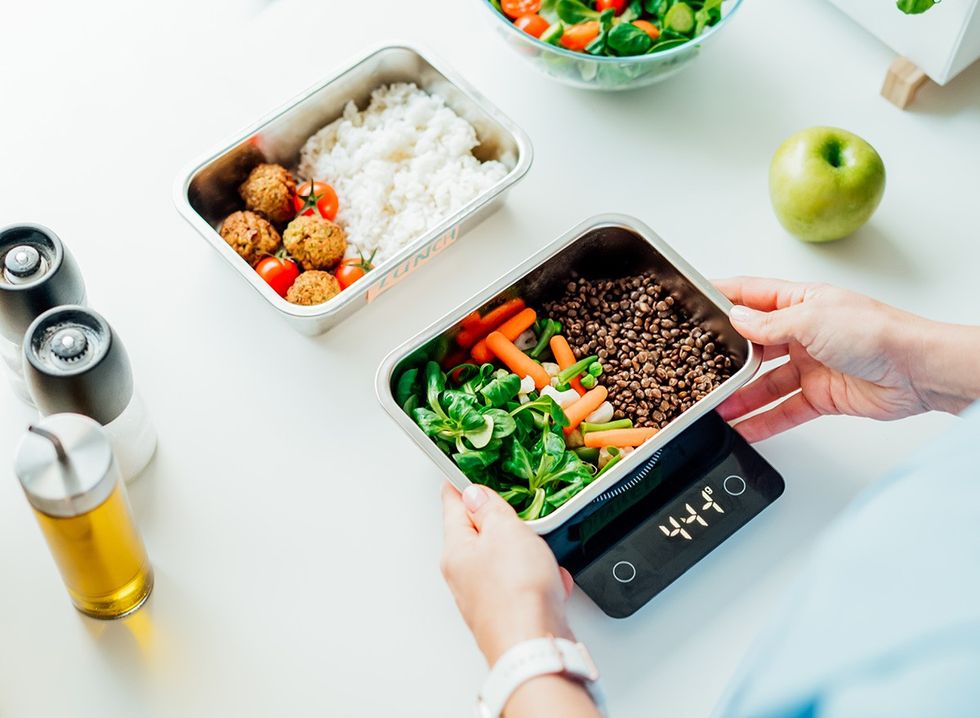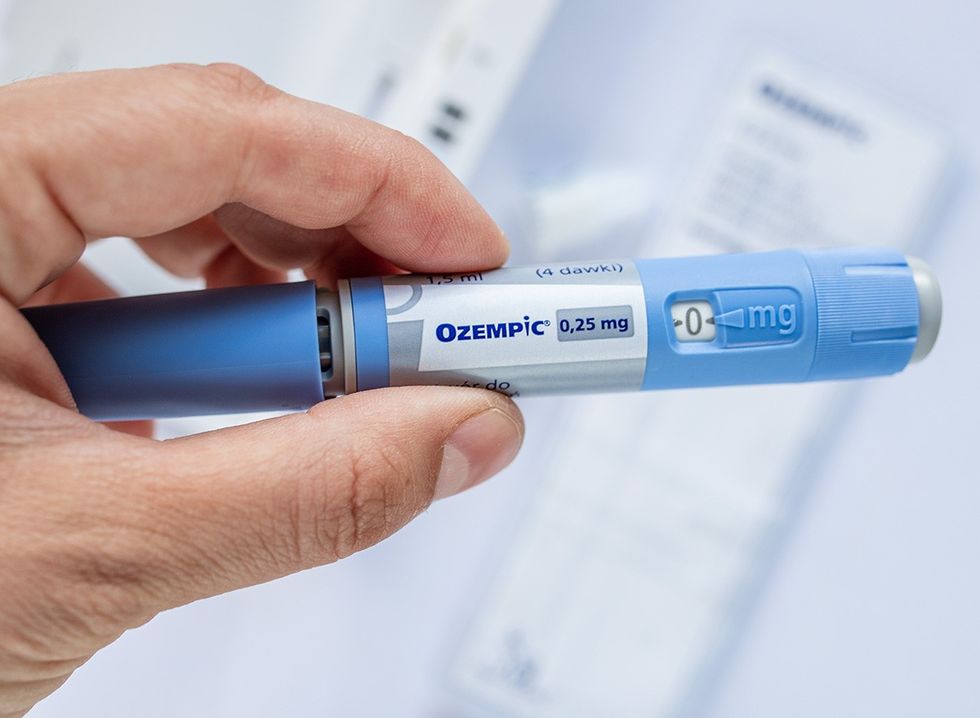When YouTube wellness influencerKeltie O'Connor decided to give up alcohol for 30 days, she expected better sleep. What she didn't expect were eight profound changes that would transform her daily life, social connections, and overall well-being. Her experiment revealed benefits that lasted well beyond the challenge – and might inspire you to try your own alcohol-free month.
Alcohol's Hidden Impact on Your Body
Leah Miller, MHC from American Addiction Centers, explains that "Alcohol can change how the brain functions and appears, altering moods, behavior, coordination, and memory." Beyond the brain, Miller notes that "Both chronic alcohol consumption and binge drinking can affect the heart, leading to cardiomyopathy, irregular heartbeat, increased risk of stroke, and high blood pressure."
RELATED: This Is Exactly How to Lose Body Fat This Year
Why One Month Without Alcohol Can Change Everything
"I don't have a drinking problem," Keltie explains in her post, "but after traveling through Ibiza and Europe with friends, I found myself craving routine, quality REM sleep, and just being on my game." She adds, "I get such a high dopamine fix from being with people in that first drink and even second up to a third...but today I got up, I'm not even that hungover, it's just I feel so unproductive."
Miller notes that even brief periods of sobriety can lead to "Improvement or reversal of most of the cognitive damage, including memory, planning, organization, behavior control, and reaction time."
The First Change: Sleep Quality Transformation
"My sleep quality was just bang on. I've never done that for a full month of just going to bed 10:30 to midnight every night and waking up six to seven-thirty every day," Keltie reveals.
Miller explains that this improvement occurs because alcohol significantly disrupts natural sleep patterns, and removing it allows the body to restore its natural rhythms.
The Second Change: Heart Health and Recovery
Keltie noticed her heart rate variability (HRV) improved consistently. "My HRV never plummeted, but it will affect my workouts next week... It was just nice to have a consistent month." Miller confirms that stopping alcohol can lead to "lower blood pressure" and improved cardiovascular function within weeks.
RELATED: 15 Quick Ways to Lose Body Fat Percentage in a Week
The Third and Fourth Changes: Skin and Digestion
The physical benefits extended beyond internal health. Keltie experienced clearer skin and better digestion, changes that Miller attributes to alcohol's impact on the body's ability to absorb nutrients and maintain hydration. "Alcohol impairs the body's ability to fight diseases... even a full 24 hours after getting drunk."
The Fifth Change: Fitness Consistency
"I'm a social butterfly without the bar. Who is she?" Keltie shares about her newfound ability to do back-to-back morning workouts on weekends. Miller notes that sobriety can lead to "Maintaining a healthier body weight" and "Potential regeneration of damaged liver cells," supporting better overall fitness performance.
RELATED: This Plan Is How to Lose 5 Percent Body Fat In 2 Weeks
The Sixth Change: A New Kind of Social Life
"I self-sabotage when I isolate myself and I'm not around people. I'm very extroverted," Keltie admits. Instead of limiting her social life, sobriety enhanced it. At a beach hangout, she found, "This was actually amazing. Just met people, and I remembered everything we did, and I just talked from the heart."
Miller suggests this success comes from learning to "Find ways to occupy your time" and "Consider joining a support group."
The Seventh Change: All-Day Energy
"I never had that one to five o'clock feeling, and I just haven't had it in a month," Keltie shares. Even at events where drinking is normal, like a DJ show, she found new appreciation: "As someone who's a DJ themselves, it was nice to go sober because I really appreciated the stage, and I can remember actually what happened."
The Eighth Change: Mental Clarity and Productivity
The mental fog lifted, leading to better focus and productivity. "It was nice to have a consistent month that every day I had good sleep," Keltie notes. Miller explains that this mental clarity comes from "Improvement or reversal of most of the cognitive damage, including memory, planning, organization, behavior control, and reaction time."
RELATED: This Woman Lost 40 Pounds After Quitting These 5 Common Habits Forever
How These Changes Last Beyond 30 Days
While Keltie hasn't sworn off alcohol completely, noting, "Of course, I'm going to drink, have fun with my family," she's discovered a new approach: "I'm just trying to be more social in my day-to-day instead of just when I drink. I feel more lightness, joy, laughter, and fun in my daily life than just in my nighttime life."
Miller underlines that "A lowered risk of cancer with each year of sobriety" is just one of many long-term benefits of reducing alcohol consumption. According to Miller, success comes from having a plan and support system in place. Whether you're looking to quit entirely or just take a break, the benefits to both body and mind make it worth considering. And if you enjoyed this article, don't miss I’m a Nutritionist and Here Are 25 Weight Loss Truths You Need to Hear.














 Shutterstock
Shutterstock Shutterstock
Shutterstock Shutterstock
Shutterstock Shutterstock
Shutterstock
 Shutterstock
Shutterstock Shutterstock
Shutterstock Shutterstock
Shutterstock Shutterstock
Shutterstock



 I'm a Nutritionist and These 9 High-Protein Snacks Keep My Clients Full While Losing 50 Pounds
I'm a Nutritionist and These 9 High-Protein Snacks Keep My Clients Full While Losing 50 Pounds
 Shutterstock
Shutterstock 2. Processed FoodsShutterstock
2. Processed FoodsShutterstock Shutterstock
Shutterstock Shutterstock/Prostock-studio
Shutterstock/Prostock-studio Shutterstock
Shutterstock Pro TipsShutterstock
Pro TipsShutterstock Shutterstock
Shutterstock Shutterstock
Shutterstock Shutterstock
Shutterstock Shutterstock
Shutterstock Don’t Drink as Much AlcoholShutterstock
Don’t Drink as Much AlcoholShutterstock Most Women on GLP-1s Are Making a Few Common MistakesShutterstock
Most Women on GLP-1s Are Making a Few Common MistakesShutterstock Soda and Sugary DrinksShutterstock
Soda and Sugary DrinksShutterstock Shutterstock
Shutterstock Eat BreakfastShutterstock
Eat BreakfastShutterstock And Improve Insulin SensitivityShutterstock
And Improve Insulin SensitivityShutterstock Belly Flab Strip Tip: Sugar and Fat Calories Leave Its Mark on Your BodyShutterstock
Belly Flab Strip Tip: Sugar and Fat Calories Leave Its Mark on Your BodyShutterstock Shutterstock
Shutterstock The Drugs Mimic the GLP-1 Hormone Naturally Produced by the BodyShutterstock
The Drugs Mimic the GLP-1 Hormone Naturally Produced by the BodyShutterstock 3. Deep-Fried ItemsShutterstock
3. Deep-Fried ItemsShutterstock